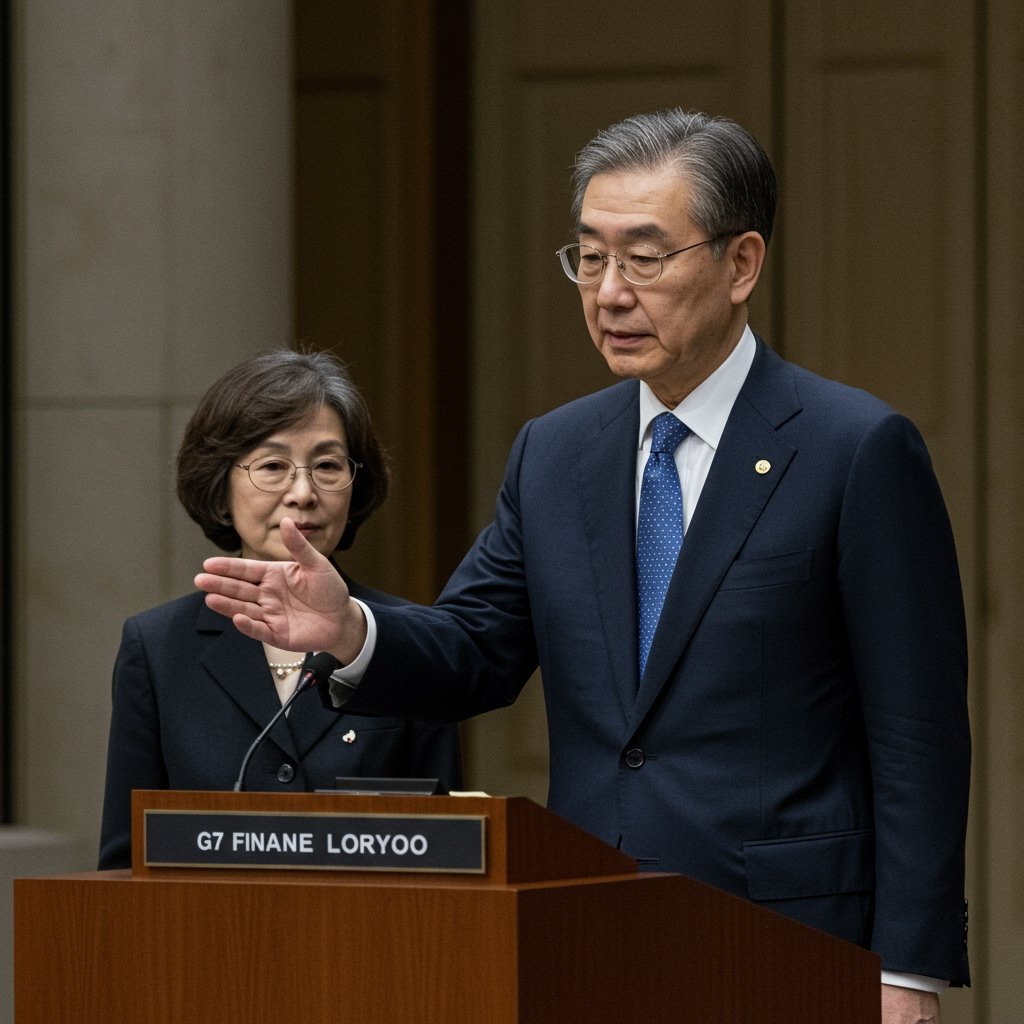G7 Finance Chiefs Grapple with Global Economic Headwinds in Tokyo Summit
Tokyo, Japan – Against a backdrop of complex global economic dynamics, finance ministers and central bank governors from the Group of Seven (G7) leading industrialized nations gathered in Tokyo on April 20, 2025, for pivotal discussions aimed at coordinating strategies on key financial and monetary challenges. The high-level meeting brought together representatives from the United States, Canada, France, Germany, Italy, Japan, the United Kingdom, and the European Union, underscoring the group’s collective effort to navigate a volatile economic landscape.
The primary focus of the day’s agenda centered on the persistent challenge of elevated inflation that has impacted global economies. Officials acknowledged that inflationary pressures remained a significant concern, noting specifically that recent energy price volatility coupled with ongoing supply chain disruptions were major factors exacerbating the situation. The prolonged nature of these disruptions and the unpredictability of energy markets were cited as key challenges hindering a swift return to price stability.
Coordinated Monetary Policy Action Becomes Imperative
A significant outcome of the discussions on inflation was a strong consensus on the necessity of enhanced coordination among member central banks. Recognizing that national monetary policies have global spillovers, ministers and governors agreed on the importance of aligning their approaches where possible to maximize effectiveness and avoid unintended consequences. Institutions like the US Federal Reserve and the European Central Bank, whose actions have wide-reaching international impacts, were explicitly mentioned in the context of this proposed coordination. The aim is to ensure that efforts to curb inflation are mutually reinforcing, thereby contributing to greater global economic stability.
The dialogue explored various facets of monetary policy tightening and the delicate balancing act required to tame inflation without triggering excessive economic contraction. Participants shared national perspectives on the transmission mechanisms of monetary policy, the impact of previous rate hikes, and the forward-looking challenges. The shared understanding was that while domestic mandates guide central banks, a degree of international alignment on communication and general direction could help anchor expectations and facilitate a smoother path towards price stability across G7 economies.
Navigating the Complex Terrain of Digital Currencies
Another prominent topic of discussion was the rapidly evolving landscape of digital currencies and stablecoins. Ministers and governors dedicated considerable time to addressing the potential opportunities and, critically, the inherent risks associated with these technologies. A shared concern for financial stability underpinned these discussions. Officials expressed apprehension regarding potential risks such as market volatility, consumer and investor protection issues, illicit finance activities like money laundering and terrorist financing, and the potential for stablecoins to disrupt traditional financial systems if not properly regulated.
The G7 representatives outlined plans for developing potential multilateral frameworks for regulating digital assets. There was a recognition that unilateral national approaches could be insufficient or even counterproductive in managing assets that are inherently borderless. The goal is to establish common principles and regulatory standards that can be applied across jurisdictions, fostering innovation while simultaneously mitigating risks. Discussions touched upon various regulatory levers, including licensing requirements for service providers, rules for reserve management in the case of stablecoins, and standards for data reporting and transparency. The collaborative approach aims to prevent regulatory arbitrage and ensure a level playing field globally.
While focusing on risks, delegates also acknowledged the potential benefits that well-regulated digital assets could offer, such as increased efficiency in payments and broader financial inclusion. However, the emphasis in this meeting remained firmly on establishing robust regulatory guardrails to protect the integrity of the financial system and safeguard consumers.
Commitment to Sustainable Growth and Fiscal Responsibility
A joint communiqué was issued following the conclusion of the talks, summarizing the key points of agreement and reiterating the G7’s collective commitments. The communiqué reaffirmed the G7’s dedication to pursuing sustainable fiscal policies. This includes managing public debt responsibly while ensuring fiscal frameworks remain flexible enough to respond to economic shocks. The commitment to fiscal sustainability was presented not as an end in itself, but as a crucial foundation for long-term economic health.
Alongside fiscal prudence, the communiqué also highlighted the group’s commitment to measures designed to support targeted economic growth. This involves identifying and implementing policies that can boost productivity, encourage investment in areas like green technology and digitalization, and ensure the benefits of growth are broadly shared. The discussions acknowledged the need for structural reforms in member economies to enhance resilience and potential growth rates.
The Tokyo meeting served as a crucial platform for the G7 to solidify its united front in addressing global economic challenges. By coordinating strategies on inflation control through enhanced central bank cooperation and laying the groundwork for multilateral regulation of digital currencies, the G7 finance ministers and central bank governors demonstrated their intent to proactively manage risks and foster a more stable and predictable global economic environment in the face of ongoing uncertainty.






